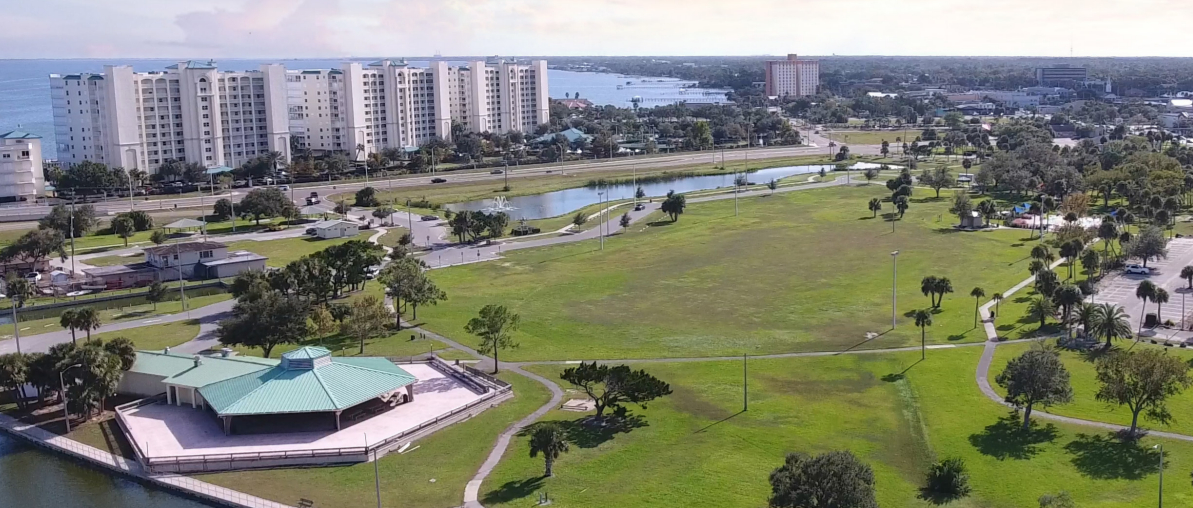The U.S. Space Force has granted the use of several launch pads at the iconic Cape Canaveral launch facility in Florida to four additional private launch companies. The decision is part of the Space Force’s new Launch Pad Allocation Strategy (LPAS) and is expected to provide a significant advantage for the selected companies.
The Space Launch Delta 45, which oversees all space launch operations from the U.S. East Coast on behalf of the Space Force, made the announcement via a statement on their Twitter feed. The selected companies will now have access to launch facilities at the Cape Canaveral launch site, providing them with a unique opportunity to launch their space missions.

The companies that have been granted access to the launch pads at Cape Canaveral are ABL Space, Stoke Space, Phantom Space and Cocoa-based Vaya Space.
The move is seen as a significant step in advancing the U.S. space launch industrial base. According to the statement released by the Space Launch Delta 45, offering launch facilities to new companies fosters the development of new launch space systems.
The LPAS aims to provide the private space industry with greater access to launch facilities and to encourage competition in the industry. The decision to grant access to the Cape Canaveral launch site is expected to increase competition among private space launch companies, which could ultimately benefit the entire space industry.
The Cape Canaveral launch site is an iconic location in the history of space exploration, having launched some of the most significant space missions in history. With the allocation of several launch pads to private launch companies, the site is expected to play a crucial role in the future of space exploration.
SLC-13: Phantom Space & Vaya Space
Phantom Space
Tucson-based startup Phantom Space Corporation is making strides in rocket manufacturing and space transportation. The company was founded by Jim Cantrell and Michael D’Angelo and has recently announced the development of two rockets called Daytona and Laguna.
The Daytona rocket is a two-stage vehicle that will stand 18.7 meters tall and 1.5 meters in diameter. It is capable of carrying 450 kilograms to low Earth orbit, 160 kg to GTO, or 50 kg to the Moon at a launch price of $4 million. The rocket will use nine Hadley engines on its first stage and one Hadley Vacuum engine on its second stage. The company expects to launch the Daytona rocket in 2023.

Phantom Space Corporation is also working on a larger rocket called Laguna. This two-stage rocket will be 20.5 meters tall and 2 meters in diameter, with a capacity to launch 1,200 kilograms to low Earth orbit, 425 kg to GTO, 200 kg to the Moon, or 100 kg to Mars. The first stage will be powered by three of Ursa Major’s larger Ripley engines and the second stage will again feature a single Hadley Vacuum engine. The company aims to land the Laguna first stage through hydraulic-actuated aerodynamic surfaces and foldout landing legs, similar to how SpaceX lands Falcon 9, with a launch price of $8 million.
In April 2021, Phantom Space Corporation secured $5 million in seed investment funding. A month later, the company acquired StratSpace, a satellite program designer and manager founded by Cantrell in 2000. This acquisition allowed Phantom Space to become the first 100% U.S.-based satellite supply chain and mass-produce rockets on a large scale.
In August 2021, the company acquired Micro Aerospace Solutions (MAS), a space systems developer based in Melbourne, Florida. With this acquisition, Phantom Space Corporation is working to streamline its operations and increase its production capacity.
Talk of Titusville will always be free to access.
If you love what we’re doing, please consider becoming a monthly Supporter HERE.
The advancements made by Phantom Space Corporation indicate a growing interest in rocket manufacturing and space transportation. The company’s focus on producing affordable and capable rockets is an essential part of creating a sustainable space industry.
Vaya Space
Vaya Space, a newcomer to both the Space and Defense sectors, has been making waves with its patented technologies that promise to revolutionize the launch industry. The California-based startup has already completed more than 100 successful test fires and a suborbital launch, thanks to its breakthroughs in cost, safety, and reliability.

One of Vaya’s most significant achievements is in missile engine technologies, which enable variable trajectory and signature, rapid deployment, and insensitivity to storability and supply chain security. The company expects to deliver tactical payloads at ranges exceeding 1,000 miles with precision accuracy and do so at a substantially lower cost than its competitors.
Vaya has also been making headlines for its commitment to sustainability. The company’s engine fuel grains are made from recycled thermoplastics, eliminating approximately 20 metric tons of plastics from the earth per launch. The rockets convert into water vapor and CO2 as they ascend into space.
Over the past six months, Vaya has received recognition from various organizations, including the White House for its leadership in its apprenticeship program and the Green Organization at the House of Parliament in London for its sustainability leadership. The company has also earned more than $100 million in commitments from satellite customers.
Recently, Vaya received high-profile support from General Abrams, who is selective in what he does in his post-active duty life and who he does it with. He commented that Vaya’s technologies, coupled with their excellent leadership team, can make a tremendous difference for the country. Vaya’s implementation of its technologies has the potential to bring a completely new and much-needed capability for strategic and tactical missiles, which can provide the country’s forces decisive overmatch now and well into the future.
Vaya’s Chairman of the Board, Sid Gutierrez, a former Space Shuttle Commander and the first US-born Hispanic Astronaut, commented, “My passion for a safer and better way to space was the genesis of Vaya. We believe we have achieved this objective, and in our quest, we have also developed breakthroughs for multiple Defense applications.” The partnership with General Abrams will bring awareness within the Defense community of Vaya’s new capabilities and accelerate the process of strengthening the warfighting abilities of the forces.
With its cutting-edge technologies, commitment to sustainability, and high-profile endorsements, Vaya Space is well-positioned to disrupt the space launch and defense strategic and tactical missile markets. The startup is one to watch in the coming years as it continues to innovate and make strides in the industry.
SLC-14: Stoke Space
Stoke Space, a Kent, Washington-based space transportation company, has been granted permission to take over the Florida launch complex that witnessed John Glenn’s historical journey into orbit in 1962. The U.S. Space Force granted Stoke Space the Space Launch Complex 14 at Cape Canaveral Space Force Station on Tuesday to use as a launch operations center, as announced in a news release.

Julia Black, Stoke Space’s Director of Launch Operations, expressed her excitement about the chance to reactivate the historical Launch Complex 14, stating that it was an honor for the company to be trusted with such a responsibility. Stoke Space hopes to contribute to the accomplishments of the American space program, and they believe that the reactivation of Launch Complex 14 is a step in that direction.
Launch Complex 14 was used to launch John Glenn’s historic mission and the following three Mercury-Atlas missions. After Mercury, it supported the Gemini program before becoming inactive in 1966. The site’s original blockhouse was restored and turned into a conference center and tourist attraction in the 1990s.
Jennifer Thompson, Stoke Space’s Head of Marketing, noted that the announcement came as a surprise to the company, which is now discussing ways to maintain the site’s historical significance while expanding it to support space exploration’s future. Stoke Space aims to ensure that the site remains an essential part of the United States’ space history while contributing to the growth of the space industry.
Stoke Space’s acquisition of LC-14 has a historical significance that the company acknowledges and intends to preserve. As a result, the company is actively discussing ways to maintain the site’s historical value while upgrading it to support modern-day space exploration efforts. The company hopes that LC-14 will continue to be a testament to the United States’ history in space exploration and serve as a platform for future progress.
With the allocation of Space Launch Complex 14, Stoke Space now has the opportunity to build its reputation in the space industry. The company has made it clear that it will be responsible for maintaining the historical significance of the site while using it for current and future space exploration missions. Stoke Space’s acquisition of Launch Complex 14 is a significant step in the development of the company and the broader space industry.
SLC-15: ABL Space
California-based aerospace firm ABL Space has become a major player in the US small satellite launch market. Founded in 2017, the company is backed by venture capital funds and Lockheed Martin. With a valuation of $2.4 billion in 2021, the company reported a backlog of more than 75 missions, primarily from a bulk order of up to 58 launches from Lockheed Martin.

ABL Space has also secured a contract with NASA for a small satellite tech demo mission and is one of 13 companies in NASA’s roster of providers for venture-class launch services. In addition, the US Space Force added ABL to its roster of 11 companies eligible to win contracts to launch the military’s small satellite payloads over a nine-year period.
However, ABL recently faced a setback when its RS1 rocket experienced an anomaly during its first test flight on February 22. While the rocket took off from the Pacific Spaceport Complex in Alaska, it veered off-course and was destroyed mid-flight. ABL Space CEO Harry O’Hanley stated that the incident was a “learning experience” and vowed to push forward with another test flight.
The RS1 rocket has the capability to lift heavy payloads and is expected to compete with other small satellite launch providers. In fact, it slightly exceeds the performance of Firefly Aerospace’s Alpha rocket, which reached low Earth orbit on its second test flight on October 1, 2021, following launch from Vandenberg Space Force Base in California. However, the Alpha rocket’s CubeSat payloads were deployed into a lower-than-expected orbit, causing the small satellites to soon re-enter the atmosphere.
ABL Space’s innovative rocket engine technology has been hailed for its simplicity and scalability. The RS1’s engine is designed to be easily manufactured and requires fewer components, which lowers the risk of component failure. It also allows for rapid production, allowing ABL to increase its launch frequency to meet the growing demand for small satellite launches.
Despite the recent setback, ABL Space remains optimistic about the future of small satellite launches. The company is committed to developing reliable and affordable launch solutions, and its CEO has stated that the team is “chomping at the bit” for the second test flight of the RS1 rocket. With its strong financial backing and partnerships with major players in the aerospace industry, ABL Space is well-positioned to make a significant impact in the small satellite launch market.












Leave a Reply